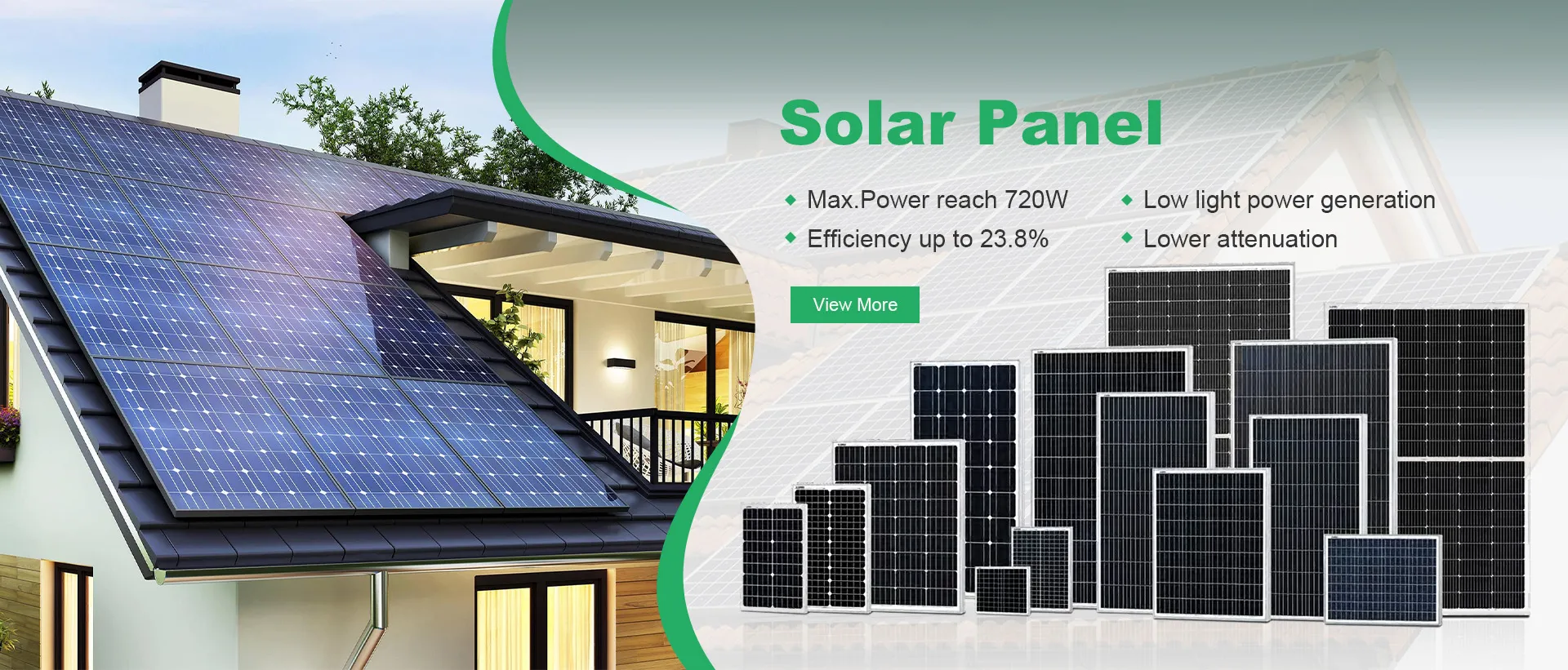4 types of solar panels
Understanding the Four Types of Solar Panels
As the world moves towards sustainable energy sources, solar panels have emerged as a crucial technology in harnessing renewable energy from the sun. Solar panels come in various types, each with distinct characteristics, advantages, and applications. Understanding the four main types of solar panels can help consumers make informed decisions about which technology best suits their energy needs.
1. Monocrystalline Solar Panels
Monocrystalline solar panels are known for their high efficiency and sleek appearance. Made from a single crystal structure of silicon, these panels are typically dark black in color and have rounded edges. Their high efficiency—ranging from 15% to over 22%—means they can produce more power per square meter than other types. This makes them ideal for residential and commercial applications where space is limited.
One significant advantage of monocrystalline panels is their longevity. They often come with warranties of up to 25 years, reflecting their durability and performance over time. However, they tend to be more expensive due to the manufacturing process, which requires more silicon material.
2. Polycrystalline Solar Panels
Polycrystalline solar panels are another popular choice. They are made from multiple silicon crystals, giving them a bluish hue and a speckled appearance. The manufacturing process is less energy-intensive and cost-effective compared to monocrystalline panels, making polycrystalline panels generally more affordable.
While they have slightly lower efficiency rates—typically between 13% to 16%—polycrystalline panels are still a viable option for many homeowners and businesses. Moreover, they perform relatively well in high temperatures, which can be an advantage in hot climates. Polycrystalline panels also have a good lifespan, though slightly shorter than their monocrystalline counterparts.
4 types of solar panels

3. Thin-Film Solar Panels
Thin-film solar panels represent a different approach to solar technology. Unlike the crystalline options, these panels are made by layering photovoltaic material onto a substrate. This design makes them lightweight and flexible, allowing for installation on various surfaces, including curved surfaces and building-integrated applications.
Thin-film panels generally have lower efficiency, averaging around 10% to 12%, but they perform well in low-light conditions, making them suitable for cloudy regions. They are also less affected by temperature fluctuations, which can enhance their overall performance in certain environments. While they may require more space to generate the same amount of power as crystalline panels, their versatility and adaptability make them appealing for innovative installations.
4. Bifacial Solar Panels
Bifacial solar panels are a newer technology that has gained popularity due to their ability to capture sunlight from both sides. This unique design allows them to harness reflected light from the ground, potentially increasing energy output by 10% to 20%. Typically made from monocrystalline or polycrystalline materials, bifacial panels can be used in various applications, from residential rooftops to large-scale solar farms.
While bifacial panels can be more expensive to install, their capacity for higher energy yield can offset these costs over time. They are particularly effective in installations with reflective surfaces beneath them, such as white rooftops or sandy soil.
Conclusion
Choosing the right type of solar panel depends on various factors, including budget, space, efficiency, and climate. Monocrystalline and polycrystalline panels remain popular for their efficiency and reliability, while thin-film panels offer versatility in unique installations. Bifacial panels present an innovative approach to increasing energy output. By understanding these four types of solar panels, consumers can better navigate their options in the evolving solar energy landscape.
-
Unlocking Energy Freedom with the Off Grid Solar InverterNewsJun.06,2025
-
Unlock More Solar Power with a High-Efficiency Bifacial Solar PanelNewsJun.06,2025
-
Power Your Future with High-Efficiency Monocrystalline Solar PanelsNewsJun.06,2025
-
Next-Gen Solar Power Starts with Micro Solar InvertersNewsJun.06,2025
-
Harnessing Peak Efficiency with the On Grid Solar InverterNewsJun.06,2025
-
Discover Unmatched Efficiency with the Latest String Solar InverterNewsJun.06,2025







